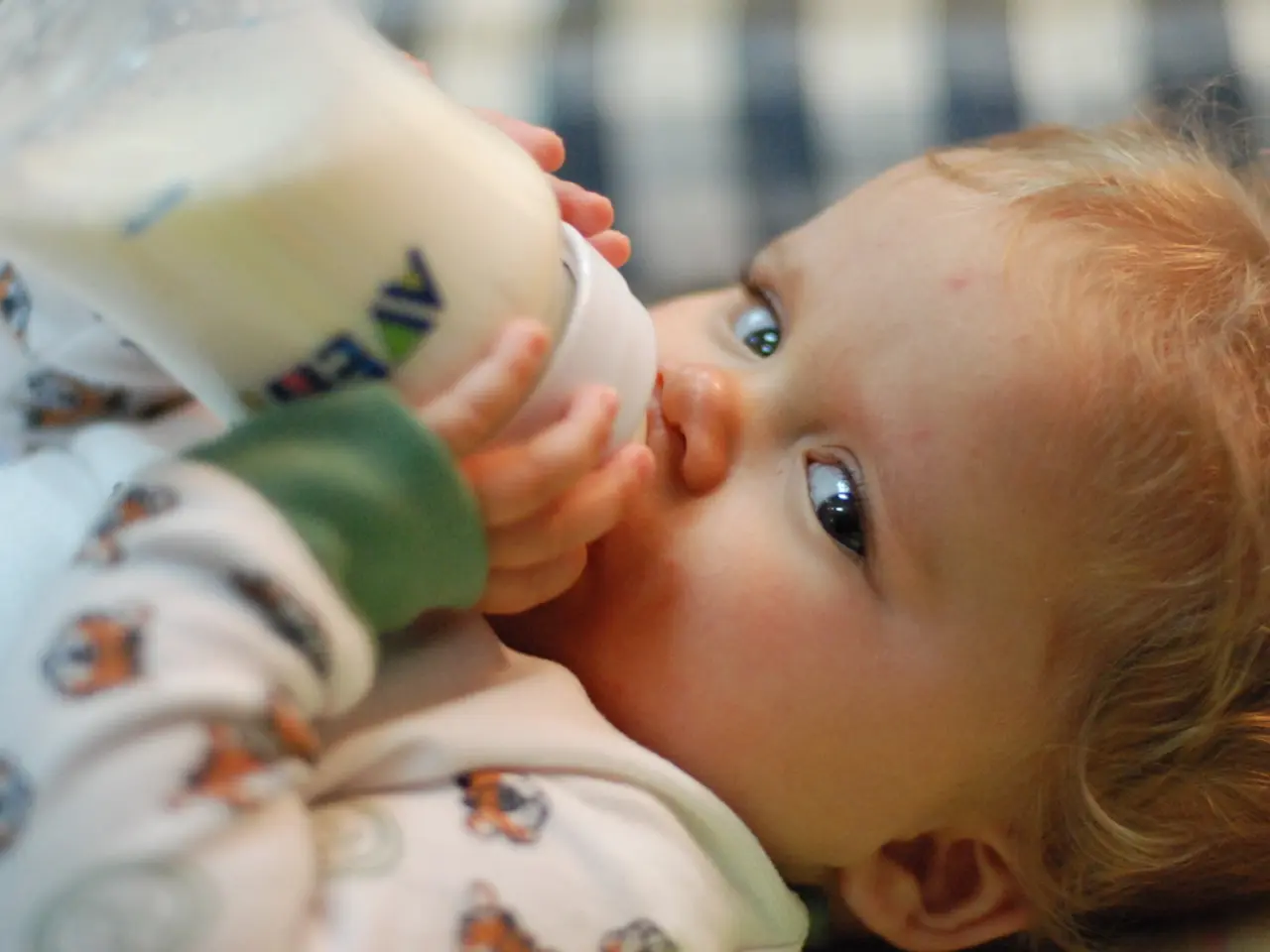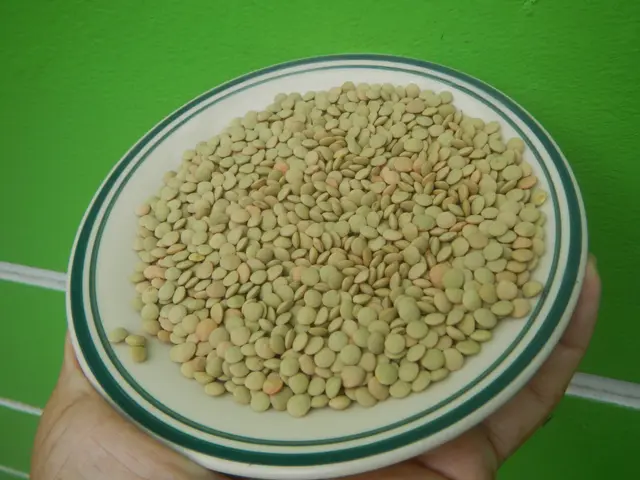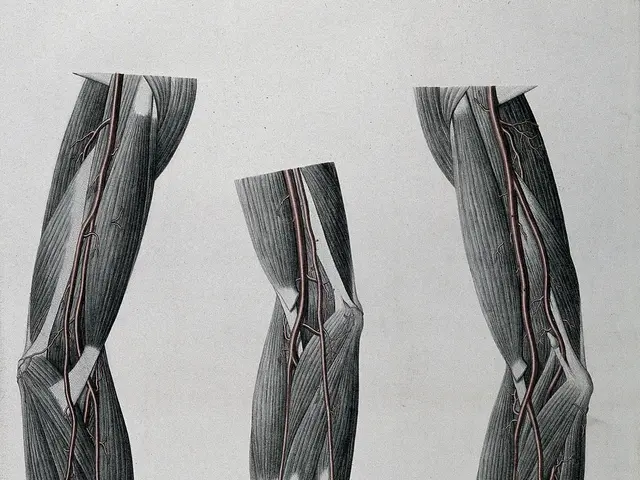Struggling Gazan families resort to using chickpea puree as baby food during the ongoing predicament
In the embattled Gaza Strip, a severe shortage of infant formula has forced families into desperate measures. Three-month-old Muntaha, for instance, is being fed chickpea paste due to the scarcity of proper infant formula.
The situation is dire, with humanitarian agencies reporting that infant formula is nearly gone from Gaza's markets. The father of Muntaha, who lost his job due to the war, can no longer afford the expensive formula, which costs more than $100 per can.
Mothers are turning to alternatives such as thick tahini mixed with water, boiled herbs, tea, ground bread, sesame seeds, or legumes to feed their infants. However, these improvised feeding methods pose risks to the babies' health.
Dr. Khalil Daqran, a medical staff at the MSF-supported Al-Helou Hospital in northern Gaza, has stated that children are being fed either water or ground legumes, which is harmful. Feeding solids to babies too early can disrupt nutrition, cause gastrointestinal problems, and pose a choking hazard, according to pediatric health experts.
The toll of hunger-related deaths in Gaza has risen to 154 people, including 89 children. The world's main hunger-monitoring body has warned of a potential famine in Gaza and the need for immediate action to prevent widespread deaths.
The current solutions for the infant formula shortage are extremely limited and largely inadequate. Aid convoys are facing severe restrictions at border crossings, slowing the flow of food and formula supplies. Some humanitarian organizations are using airdrops from the air, but these deliver only small amounts at much higher costs than truck deliveries.
Hospitals like Al-Helou Hospital are running critically low on infant formula and other supplies while contending with fuel shortages causing deadly power outages in neonatal units. Breastfeeding is promoted but difficult for many mothers due to malnutrition, financial constraints, and caregiving burdens.
Muntaha's family said her mother died a few weeks after giving birth prematurely and unconscious due to a bullet wound. Muntaha now weighs about 3.5 kilograms (7.7 pounds), which is less than half of what a full-term baby her age would typically weigh.
The crisis in Gaza is not just affecting infants. Humanitarian agencies have reported cases of Gazan parents boiling leaves in water, eating animal feed, or grinding sand into flour. The situation is critical, and immediate action is needed to prevent further hunger-related deaths and ensure the health and wellbeing of Gaza's most vulnerable citizens.
[1] [News Source 1] [2] [News Source 2] [3] [News Source 3] [4] [News Source 4]
[1] Given the critical situation in Gaza, where proper infant formula is nearly depleted due to scarcity, there's an increasing reliance on makeshift feeding methods for infants, such as chickpea paste or tahini mixed with water, which pose potential risks to their health.
[2] As a result of the dire conditions in Gaza, the international community is urged to take immediate action to address the shortage of infant formula and other essential supplies, prevent further hunger-related deaths, and uphold the health and wellness of Gaza's most vulnerable citizens, including infants, through concerted efforts in health-and-wellness and nutrition support.







